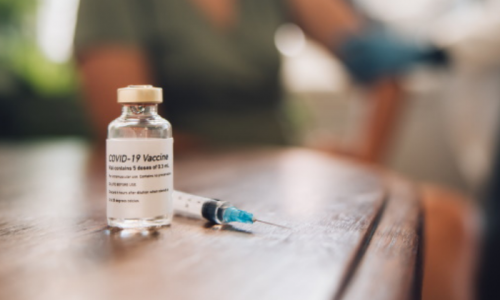The COVID-19 pandemic is ever-evolving; however, we are constantly monitoring developments and providing the latest information on our website. Our team, who have a background in immunology, virology, and MS, are in constant contact with neurologists and infectious disease experts from around Australia and internationally to ensure we have the most accurate and up-to-date information possible. Our team is also part of the advisory board of the Multiple Sclerosis International Federation (MSIF), contributing to the international guidelines for people with MS.
What is the difference between a primary course of vaccination and a booster?
It is important to understand the difference between a primary course of vaccination and a booster dose. The primary course of vaccination consists of the minimum number of doses to achieve the desired immune response.
In clinical trials for COVID-19, this was demonstrated to be two doses of vaccine given between 3 and 12 weeks apart, depending on the type of vaccination (Pfizer/ “Cominarty” or Astra Zeneca/ “Vaxzevria”). However, for people who are severely immunocompromised, the Australian Technical Advisory Group for Immunisations (ATAGI) determined that a third dose would be necessary to complete the primary course of vaccination and provide adequate protection against COVID-19.
In contrast, a booster vaccination is administered sometime after the primary course of vaccination to remind the body how to fight the virus. In the case of COVID-19, the booster dose is currently administered four months after the primary course of vaccination is completed and will be shortened to three months when capacity permits.
What does this mean for people with MS?
For most people with MS, this means they will have a 2-dose primary course of vaccinations for COVID-19, followed by a booster dose four months later, just like the general population of Australia. However, some people with MS fall within the severely immunocompromised group because of medications they may be receiving to treat their MS.
Currently, this group of medications includes ocrelizumab (Ocrevus), ofatumumab (Kesimpta), rituximab (various trade names), alemtuzumab (Lemtrada), fingolimod (Gilenya), ozanimod (Zeposia) and siponimod (Mayzent) and some other immunosuppressive medications for MS (such as high dose corticosteroids to treat a relapse) or other co-existing diseases. For these people, they will require a 3-dose primary course of vaccinations for COVID-19, followed by a booster dose four months later (this will be shortened to three months when capacity permits).
For more information on COVID-19, vaccinations, and boosters, please visit our COVID-19 Hub by clicking here.






